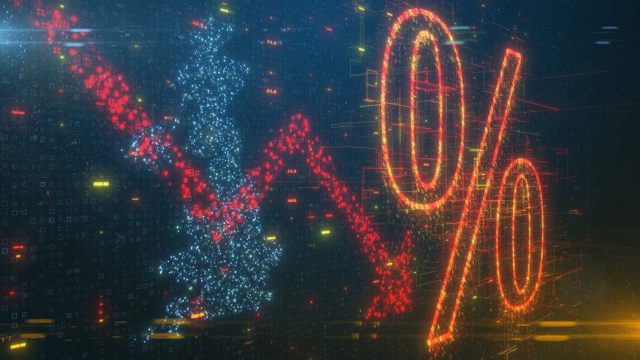A fall in demand for recreational activities and weak oil prices were among the factors that led to UK inflation falling to a four-year low in May, with further declines predicted as the economy slowly emerges from lockdown and into the “new normal”.
Figures released by the Office of National Statistics (ONS) in May revealed that the Consumer Prices Index (CPI) measure of inflation dropped last month to 0.5 per cent year on year, down from 0.8 per cent in April and well below the Bank of England’s target of 2 per cent. The figures are good news for consumers, many of whom have seen their household incomes reduced since the start of the Covid-19 pandemic.
Falling prices for motor fuels and a variety of recreational and cultural goods, including computer games, put downward pressure on inflation. These price declines were partially offset by rising prices for food and non-alcoholic drinks.
The Consumer Prices Index including owner occupiers’ housing costs (CPIH) 12-month inflation rate was 0.7 per cent in May, down from 0.9 per cent the previous month. Like the CPI, this is the lowest rate since May 2016 when the 12-month rate was also 0.7 per cent.
“The growth in consumer prices again slowed to the lowest annual rate in four years,” said ONS deputy national statistician for economic statistics Jonathan Athow.
“The cost of games and toys fell back from last month’s rises, while there was a continued drop in prices at the pump in May, following the huge crude price falls seen in recent months.
“Outside these areas, we are seeing few significant changes to the prices in the shops.”
The ONS admitted that it had difficulty compiling inflation statistics for May, since many areas of the economy were completely shut down. Seventy-four inflation items, including figures for holidays, had had to be “imputed”, or estimated, for the CPIH data, it said.
The inflation rate has stayed under the Bank of England’s 2 per cent target since last August, but the coronavirus crisis and associated shutdown of large parts of the economy has seen the rate nosedive, falling from 1.5 per cent in March to May’s current four-year low.
Economists and analysts anticipate that inflation will continue to drop in the coming months, with some predicting a near-zero rate as shops continue to slash prices in an attempt to entice consumers back as the economy gradually reopens.
If inflation falls below zero, the economy risks falling into a deflationary spiral: a vicious cycle of price declines which harm production and investment. Central banks typically lower interest rates to pull economies out of such situations, but in March the Bank of England cut UK interest rates to the lowest level ever in the Bank’s 325-year history, a rate of just 0.1 per cent.
“We expect CPI inflation to hover close to zero throughout the second half of this year, provided oil prices don’t surge,” Samuel Tombs, chief UK economist at consultancy Pantheon Economics, told the Financial Times.
Howard Archer, chief economic adviser to the EY Item Club, said: “Inflation looks certain to fall back further over the next few months and we believe it could get as low as 0.2 per cent, which will provide some much-needed help for consumers and the economy. Relatively low oil prices will limit inflation, along with substantially weakened economic activity in the near term at least.”
The latest drop in inflation at least provides the Bank of England the opportunity to loosen monetary policy further. Economists predict the bank will announce a further £100 billion of quantitative easing after its next monthly policy meeting on Thursday.
Paul Dales, economist at Capital Economics, told The Times: “Even when the economy recovers, we suspect that low wage growth will mean that inflation is more likely to spend the next few years too far below the 2 per cent target rather than too far above. That’s why we suspect that an expansion of QE by the Bank of England tomorrow won’t be the last.”
17th June 2020.









